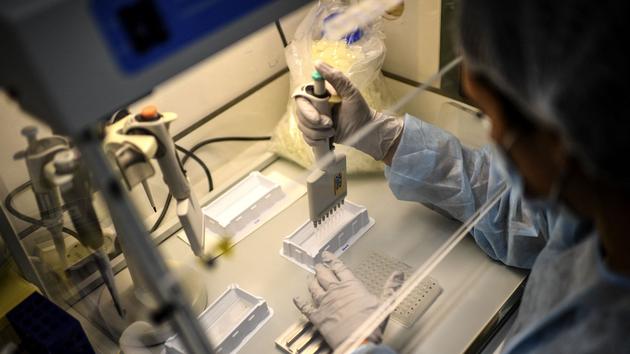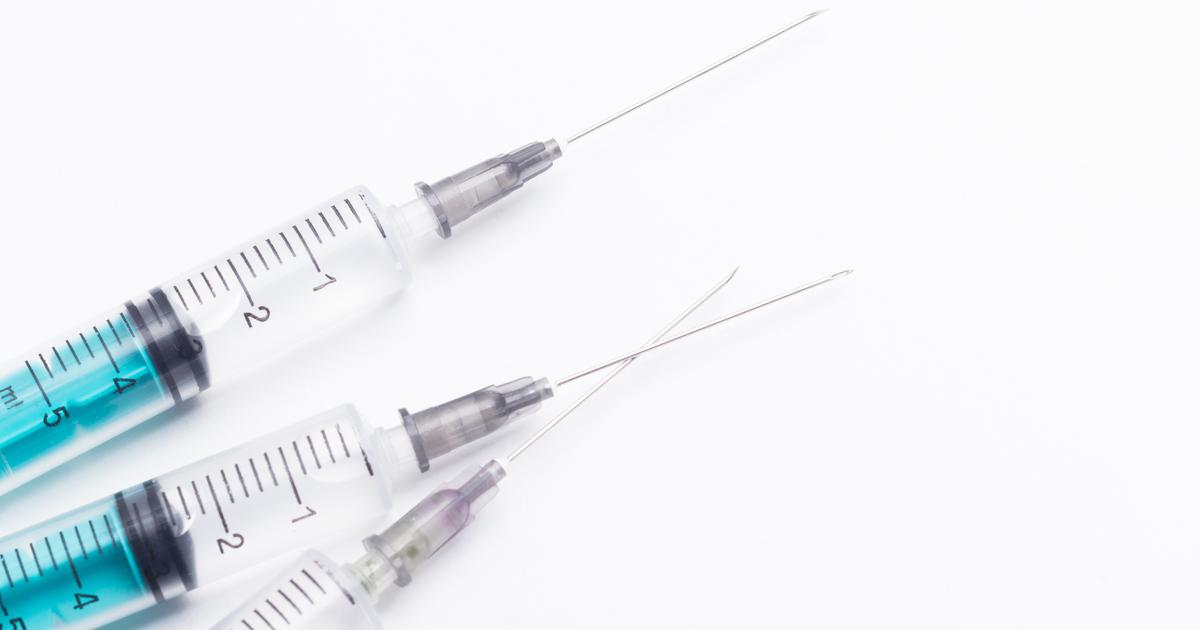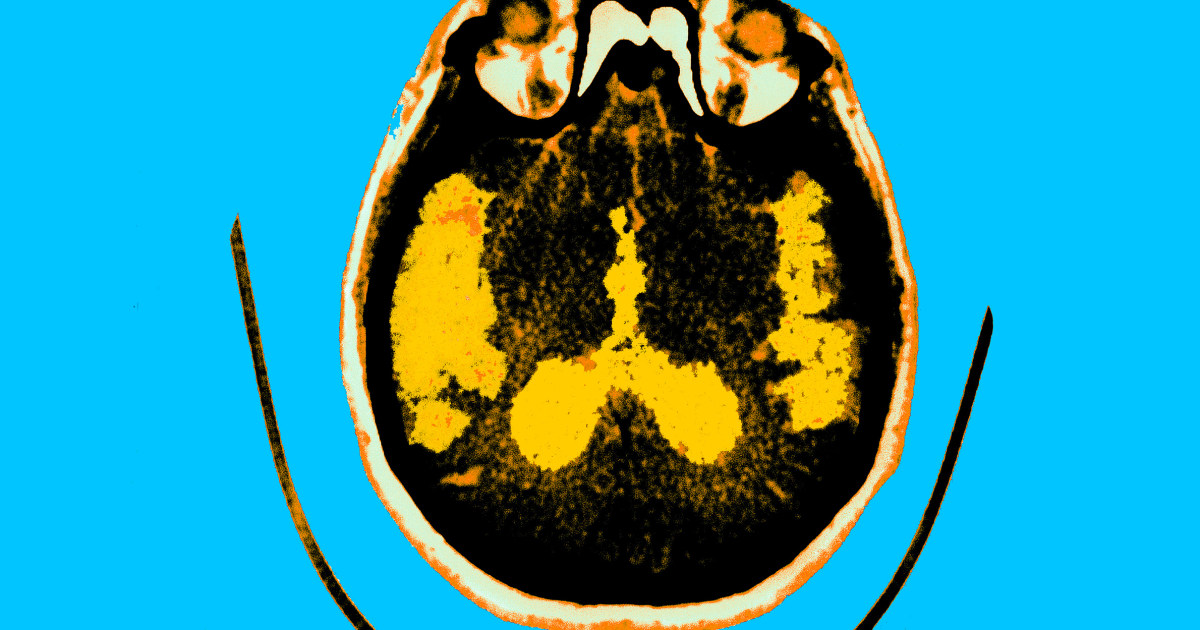As part of its LENA partnership, Le Figaro is publishing this column, signed by major European names in immunology and which calls not only for massive investment in new products, but also in the longer term in the field.
The European Commission is committed to ensuring rapid access for European citizens to the best medical technologies available against SARS-Cov-2.
So far, the Commission has focused on purchasing vaccines on behalf of the 27 EU Member States.
Prioritizing the vaccine was clearly the right thing to do;
However, it is time to also invest in antiviral monoclonal antibodies as a new element of an integrated public health strategy against Covid.
Monoclonal antibodies neutralizing SARS-Cov-2 are now recognized as the best tool for closing the vaccination deficit which is linked to supply difficulties and the slowness of vaccination campaigns in the countries of the Union.
Tens of thousands of severe cases of Covid are still to be expected in the next two years.
In addition, even if broad immunization coverage is quickly achieved, vaccines will remain ineffective or contraindicated in a number of people, due to their age or medical condition.
Monoclonal antibodies, produced by genetic engineering, offer the best prospects in these cases.
Since antiviral antibodies have emerged as a key innovation in Covid-19, they have attracted the interest of many biotechs and pharmaceutical companies.
Monoclonal antibodies and nanoantibodies ("
nanobodies
") are modern versions of what is called passive immunotherapy, a new form of treatment introduced at the end of the 19th century.
At the time, thousands of children with diphtheria were saved by the administration of horse serum containing high titers of antibodies against diphtheria toxin.
This medical breakthrough was born in France with Emile Roux and in Germany with Emil von Behring, winner of the Nobel Prize in 1901. Passive immunization then made great progress using human immunoglobulins purified from the plasma of immunized people, then by using monoclonal antibody technology, also born in Europe, from the work of Cesar Milstein in England and Georges Köhler in Germany.
To read also:
"Tests and research of a drug: to remedy our insufficiencies vis-a-vis the Covid"
In the field of infectious diseases, a monoclonal antibody to respiratory syncitial virus is the standard of care in newborns at high risk of bronchiolitis and a cocktail of monoclonal antibodies is now used in conjunction with the vaccine to fight Ebola .
As antiviral antibodies emerged as a key innovation in Covid-19, it was not surprising to see that this field has attracted the interest of many biotechs and pharmaceutical companies.
At least fourteen anti-SARS-Cov-2 antibodies or antibody cocktails are currently in clinical trials.
As in the case of vaccines, the Federal Government in the United States has taken the lead, facilitating the development, authorization for use and production of monoclonal antibodies.
Very early on, funding from the Department of Defense enabled the identification of antibodies with a high neutralizing titer, which were the subject of phase 1 tolerance trials followed by an accelerated development plan supported by "
Biomedical Advanced". Research and Development Authority (BARDA)
”.
The need for a therapeutic solution must be met which prevents progression to severe forms in high-risk patients soon after infection.
Regeneron, at the origin of the first therapeutic antibodies in this race, thus received a subsidy of 450 million dollars which allowed the acceleration of its clinical development to lead to a Temporary Authorization for Use from the agency. US regulator, the FDA, in November 2020 (Regeneron is the cocktail of antibodies that had been administered to President Trump).
AstraZeneca also received a $ 486 million grant from BARDA for the development of its anti-SARS-CoV-2 antibodies.
At the same time, the United States National Institute of Health (NIH) has set up a partnership intended to mobilize the scientific and industrial communities in order to accelerate the development of treatments and vaccines against Covid-19.
The collaboration between pharmaceutical companies has also been fruitful, as evidenced by the agreement recently signed between Eli-Lilly, Vir Biotechnology and GSK.
The impressive effort made by the United States to develop and produce anti-SARS-Cov-2 antibodies is in stark contrast to the minimal support provided by the European Commission's “Coronavirus Global Response” associated with several governments. and to the industrial and philanthropic sector as part of the “
anti-Covid-19 tools accelerator
” ACTA (anti-counterfeiting trade agreement) has only recently
drawn
up a strategic plan of $ 365 million to reserve capacities production for 9 million doses that would be available at their production cost.
Read also:
"The Covid has made it possible to make significant progress in pharmaceutical research"
This plan is welcome, but it cannot meet the immediate need for a therapeutic solution that prevents the progression to severe forms in high-risk patients soon enough after infection, or as soon as they are identified as "
cases
".
contacts
”.
This situation led Germany to buy 200,000 doses of anti-SARS-CoV-2 antibodies, independently of the European Commission.
France has also just granted a Temporary Authorization for Use of the Lilly antibody in very specific indications.
The recent emergence of several variants of SARS-Cov-2 should encourage Europe to develop a second generation of these antibodies.
Now that the European Medicines Agency is addressing the case of the Regeneron antibody cocktail, it is time for Europe to ensure access to monoclonal antibody treatments for all citizens who may need them, possibly. by negotiating pre-purchases as was done for the vaccine and by actively supporting research and development of therapeutic antibodies in Europe.
The recent emergence of several variants of SARS-Cov-2 less sensitive to neutralization by certain vaccines and certain monoclonal antibodies already on the market, should encourage Europe to develop a second generation of these antibodies effective against a broad spectrum of new ones. variants.
A number of challenges remain, however, in particular that of ensuring that these treatments can be available in the future all over the world.
Innovations are still necessary to increase the stability of the products, to develop new routes of administration simpler than the intravenous route, to ensure that the antibodies neutralize the emerging variants of the virus and, above all, to determine the conditions which would allow these biotherapies to succeed. be produced on a large scale and at affordable prices.
Scientists and biotechs in Europe are at the forefront of research in this field but only have access to limited support from current European Commission programs.
Hopes are now turned to the new HERA Health Emergency Preparedness and Response Authority, whose purpose is to emulate the American BARDA.
It is time for Europe to catch up and restore European leadership in the field of passive immunotherapy for Covid-19 and future health emergencies.
Oriol Bestard; Head of the Renal Transplantation Department, Bellvitge University Hospital, Barcelona, Spain; Alexandra Calmy, Professor of Medicine, University Hospitals of Geneva and University of Geneva, Switzerland; Godelieve De Bree, Internist-infectious disease specialist, immunologist, University Medical Center Amsterdam, The Netherlands; Michel Goldman, Emeritus Professor of Immunology, Free University of Brussels, Belgium, former Executive Director of the European Initiative on Innovative Medicines (IMI); Andrzej Gorski, Professor at the Institute of Immunology and Experimental Medicine, Academy of Sciences, Poland; Stefan Kaufmann, Director Emeritus of the Max Planck Institute for Infection Biology, Berlin, Germany, former President of the International Union of Immunological Societies; Michel Kazatchkine, Institute of Higher Studies in International Affairs and Development, Geneva, Switzerland, former Executive Director of the Global Fund to Fight AIDS, Tuberculosis and Malaria; Karine Lacombe, Professor of Medicine, Hôpital Saint-Antoine and Sorbonne-Université, Paris, France; António Parreira, Medical Director of the Champalimaud Institute, Lisbon, Portugal, Emeritus Professor of Hemato-Oncology at the University of Lisbon; Rino Rappuoli, Scientific Director, Glaxo Smithkline Vaccines, Director of the MAD laboratory, Toscana Life Sciences and University of Siena, Italy.






/cloudfront-eu-central-1.images.arcpublishing.com/prisa/ZYVWPUV4FBG5ZNEQFUECW6PXNM.jpg)


